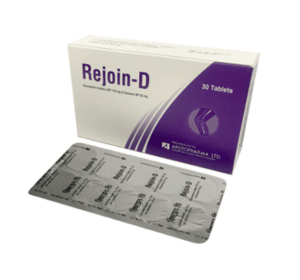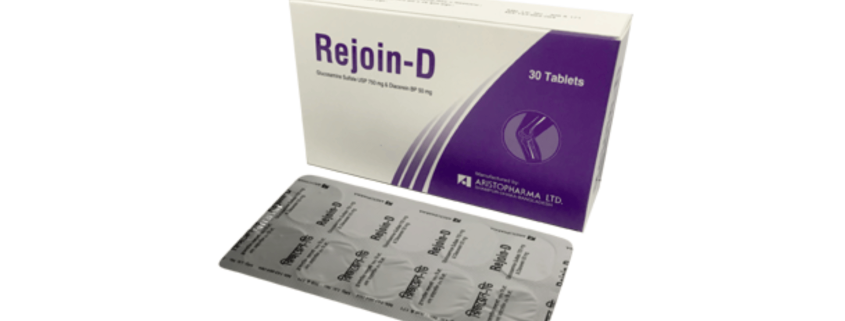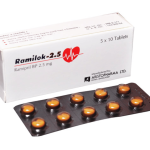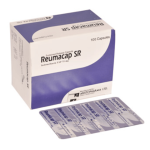Rejoin-D (Glucosamine Sulfate + Diacerein)

Therapeutic Group : Anti-arthritis Supplement
Presentation:
Rejoin-D Tablet: Each film coated tablet contains Glucosamine Sulfate Potassium Chloride USP equivalent to Glucosamine Sulfate 750 mg and Diacerein BP 50 mg.
Indications:
Rejoin-D Tablet is indicated for the treatment of Osteoarthritis, Rheumatoid arthritis, Bone & Joint injuries.
Dosage & Administration:
Adult & Children above 12 years: 1 tablet twice daily to be taken with food.
Contrainidications:
This combination is contraindicated in patients with hypersensitivity to Diacerein or Anthraquinone derivatives and Glucosamine.
Warning & Precautions:
Caution should be practiced when administering Rejoin-D in those patients who are allergic to Glucosamine and/or Diacerein or to shellfish (e.g., shrimp, crab); who have diabetes, asthma, alcohol dependence or liver disease. Complete blood count, liver function and urinalysis should be monitored regularly while taking Rejoin-D.
Side effects:
No serious side effects have been reported. Rare side effects are diarrhea, constipation, epigastric pain, heartburn, nausea, vomiting, headache, skin rashes, drowsiness, intense yellow coloring of urine.
Drug interaction:
The concomitant administration of antacids containing aluminium hydroxide and/or magnesium hydroxide should be avoided in order to maximise the bioavailability of Diacerein. Increased risk of diarrhea if taken with laxatives, antibiotics. Avoid co-administration with fibers and phytic acids.
Use in special groups:
Use in pregnancy & lactation: Glucosamine should not be taken by pregnant women and nursing mothers due to lack of scientific data regarding its effect on fetus and infants. Diacerein is contraindicated in pregnant women and lactating mothers.
Pediatric use: No data regarding pediatric dosage is available.
Hepatic Impairment: No sufficient data was found regarding the use of this combination in patient with hepatic insufficiency.
Renal Impairment: In case of patients with Creatinine Clearance (CrCl) <30 ml/min the dose should be reduced.



